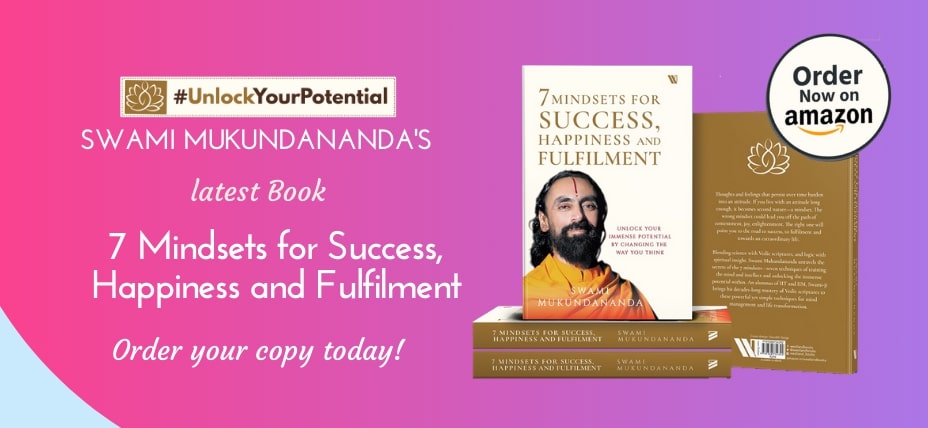Happiness is the Choice You make

“Seriously! Doesn’t happiness depend upon the situation encompassing us? Doesn’t it also depend upon the time, fate, people around us, success, failures, and many more? Doesn’t God is also responsible for our happiness?”
Statements above are common whenever we are told that it is we, who are responsible for our happiness. However, as they say
“Most people are about as happy as they make up their minds to be.” —Abraham Lincoln
Also mentioned in Ashtavakra Samhita
mukthābhimani mukto hi baddho baddhabhimānyapi
kim vandantiha satheyam yā mathih sā gathirbhavet (Chapter 1, Verse 11)
This translates to:
The one who values freedom will become free. And, one who values the bondage will remain bound. The saying:” One’s fate is as he thinks” is always true in this world.
This, in other words, means that "As we think, so we become". If we believe that our happiness depends upon the situation we are in or the people we are interacting with, we would be happy only if everything is as we wish it to be. However, as we all experience, it is seldom so. Most of the time, something or the other in our life is almost contrary to what we hope it to be. Thus, the only way of being happy always is to know that our happiness depends on us. We are the one who is solely responsible for our happiness. As Swami Mukundanand in his book “7 Mindsets for Success, Happiness and Fulfilment” says Our Feelings are a choice we make
Exercising our choice of emotions is the foundation of both our material and spiritual journey. In our relationships, we sometimes blame the other person for their faults without even realizing that it could be we who suffer from the defect. Similarly, in our spiritual journey, we blame time, fate and God for we not making the progress. As Tulsidas says
Kaalahin, Karmahin, Ishwarahin, Mithya dosh Lagaye
A man doesn’t progress in the spiritual path falsely blames luck, time and God. So, it seems that we should take responsibility for our emotions, our success, and failures in the life journey.
But, then why do Kalidas said that:
Purusha bali nai hota hai, samay hota balwan (It is not the person but the time which is powerful)
Or
Uma daaru joshita ki nain, sabahi nachaawat Ram gosain (Just as the puppeteer makes wooden dolls dance, the lord is making us all dance)
Confused?
Check out the second chapter of the latest book by Swami Mukundanand – “7 Mindsets for Success, Happiness and Fulfilment” in which he gives answers to all these confusions. He explains the reasoning behind these lines – Is God directing our actions or is it the luck or fate? He explains, why in reality we have the choice of being happy? How we could choose our emotions? What is purusharth? The role of destiny in our life. Is astrology really a science? And many more questions which arise in our mind when we try to choose our happiness.